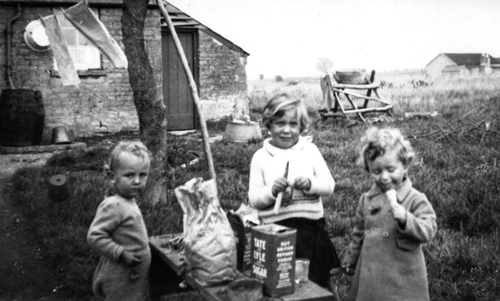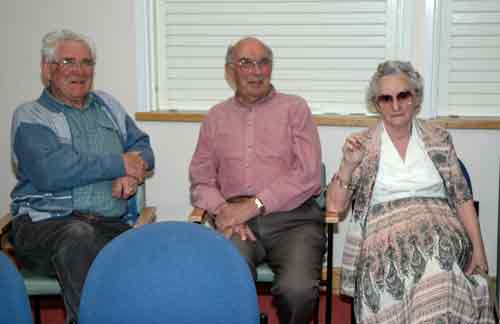Here we have an interview with late Shipton resident Jack Busby by Doreen Barnes. Doreen gives the date as April 24th, but sadly not the year. (we will update this review when we find out).
Doreen conducts the interview with a series of simple questions, which enables to discussion to give an interesting outline of Jack’s long life: a life which defines some common ground with men and families of Wychwoods villages from the mid-1920s to the mid-1980s.
Jack was the third child of six, growing up in the 1930s in Swinbrook. His mother married the son of a Shipton farmer, whom she met when she was working as a housemaid in Eastbourne. He had returned injured from WW1. Jack attended school in Ascott from the age of 3, and Shipton in 1933 from the age of 7. Jack describes the typical free and easy attitude to allowing children to roam out all day for play, and some of the strict attitudes of teachers in his day.

On leaving school he worked, as many did, at the Tillyards, but his ambitions to train as a carpenter at Groves were thwarted – and so he joined the navy at the age of 18, based in Portsmouth and seeing active service in the Far East.
Back from the war by May 1946, he left the navy, worked for a while as gardener in Bradwell Grove in a tied cottage and married local girl Phyllis. With the arrival of twin boys, the family was offered a council house in The Sands in Shipton. After another short spell at the Tillyards (this time in Station Road) Jack finally started as a trainee carpenter at Groves and worked his way to becoming a foreman and working on several prestigious projects with the firm.

Around this simple structure we learn of some key events and challenges for Jack, both in the navy and in early family life. We also get a flavour of social life in Shipton and some illustrations of how the pace of life for the Busby family – especially in the early days – reflected the huge changes and expectations for families in the post-war Wychwoods.

